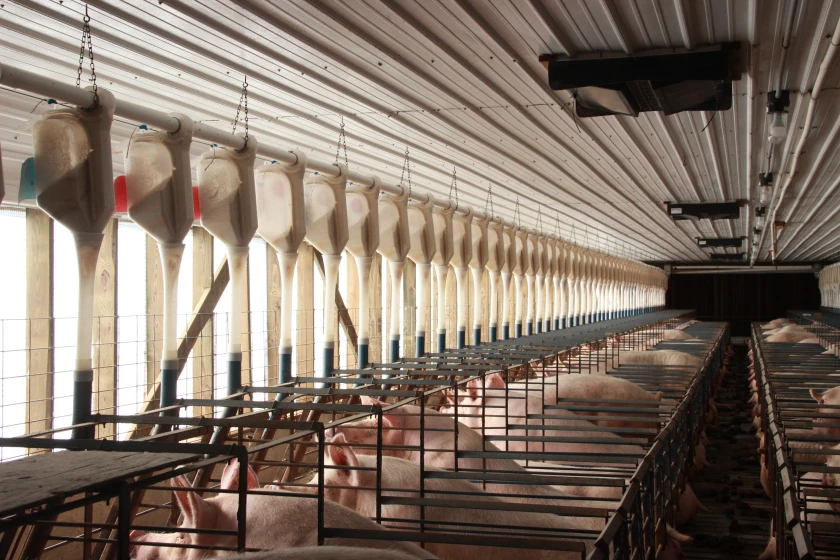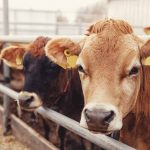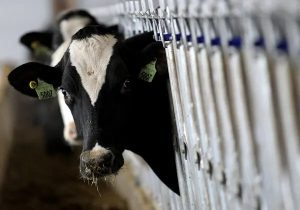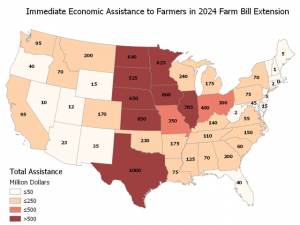
Minnesota hog farmer Paul Sobocinski says checkoff reforms are needed in the upcoming farm bill.
In his recent op ed , House Agriculture Committee Chairman Glenn Thompson said his goal for the upcoming farm bill is to “[stand] up for our hardworking producers, processors, ranchers, foresters, consumers, and every small business across the agriculture value chain.”

As a farmer who’s been raising hogs and cattle in southwest Minnesota since 1976, I support his goal of standing up for hardworking farmers, consumers, and small businesses. If Chairman Thompson means what he says, Congress will seize this chance to create opportunities for farmers like me — instead of the big corporations the farm bill’s policies have benefited in the past.
One way to accomplish the Chairman’s goal would be to reform government checkoff programs. I’ve been paying into the pork checkoff, which collects a mandatory fee every time I sell a hog, since it was created in 1986.
The National Pork Board, which runs this government program, collected more than $94 million in checkoff fees from America’s hog farmers in 2021.
In my opinion, most of the money I contribute to the checkoff winds up in the hands of organizations lobbying against policies and proposals that would let me more effectively raise and sell my livestock. Instead, these lobbyists are actually working on behalf of the biggest integrated livestock producers, multinational corporations and meat packers and passing laws that put farmers like me out of business. They have not led in addressing the monopoly crisis we have in agriculture and have not worked for open competitive markets for farmers.
Here’s a great example: The National Pork Board contracts with a lobbying organization called the National Pork Producers Council, giving them checkoff dollars to run promotional efforts.
But the NPPC is also spending big money to fight against Proposition 12 , a California law raising the animal welfare standard for pork bought and sold there. NPPC is lobbying hard to get Proposition 12 overturned and replaced with the Ending Agricultural Trade Suppression (EATS) Act : legislation that would strip state and local governments of their ability to make agricultural policies within their own borders.
Speaking to the House Agriculture Committee Listening Session at Farm Fest in Redwood Falls this past August, an NPPC spokesperson claimed Proposition 12 would hurt Minnesota hog farmers and drive further consolidation in the hog industry.
Nothing could be further from the truth. For independent hog farmers like myself, many of whom already implement higher standards of animal welfare, Proposition 12 provides us new market opportunities and a competitive edge on the big industrial hog operations.
The EATS Act, on the other hand, would actually give multinational corporations the freedom to skirt any state laws they please in their pursuit of even more power to squeeze independent farmers like myself out of business.
Independent hog farmers like myself don’t support NPPC’s efforts to pass the EATS Act or to overturn Proposition 12, and we don’t appreciate NPPC using our checkoff dollars to offset the cost of their lobbying against us.
A great deal of trust has been lost in the checkoff program, and it’s long overdue for some accountability and transparency.
Seems like Chairman Thompson and I are in agreement on that front, too: In the House floor consideration on the Ag Appropriations bill, he said that the farm bill process would be the right time to add transparency to the checkoff.
Including the bipartisan Opportunities for Fairness in Farming (OFF) Act in the farm bill would do just that. While the OFF Act wouldn’t abolish checkoffs, it would establish necessary guardrails within these programs to ensure the dollars I pay are actually spent on research, marketing, and development instead of lobbying on behalf of the largest meatpackers who threaten my business. Requiring more effective audits, more regular reports, and more honest partners will reform the pork checkoff and get it working for farmers once again.
My own representatives are in a pivotal position to create lasting change, and I can only hope Sens. Tina Smith and Amy Klobuchar agree with Chairman Thompson that their “top priority is to ensure this farm bill is written by farmers, for farmers, and by rural America, for rural America.”
Adding transparency to checkoff through this farm bill could go a long way in making it start to work for family farmers and rein in corporate domination over our food system.
(Editor’s note: Paul Sobocinski is owner and operator of a beef and hog farm near the town of Wabasso in southwest Minnesota since 1976.)

























